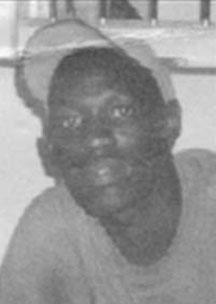Eon Williams, on trial for allegedly stabbing his friend Kwesi Wilson to death, was acquitted yesterday after Justice Roxane George upheld a no-case submission in the High Court.
Williams left the High Court a free man after Justice George concluded that there was no evidence to suggest that he had stabbed Wilson to death in 2007, at Sandy Babb Street, Kitty.
Attorney Compton Richardson was the lawyer for the accused, while the state’s case was presented by Konyo Sandiford and Renita Singh. The prosecution indicated that it would appeal the decision.

It was alleged that on the night of Wilson’s death, he and Williams argued, after he told Williams that he was uneducated, in front of the home of another friend, Kurt Lachish. Natasha Daniels, a witness, had told the court that she saw Wilson brandishing a knife in the direction of Williams, who blocked the knife with his hands after the argument became intense. Daniels also told the court that Wilson and Williams both had knives in their possession when the fight started but Williams subsequently dropped his knife and told Wilson “you cut me” twice.
Wilson then left for home and Williams subsequently left to go to the Kitty Police Station, located in the opposite direction. However, Williams later approached Wilson at his home and they continued fighting and it was at this point that Wilson was stabbed. Williams had reportedly stated in his caution statement that he and Wilson had a fight and “Kwesi had a knife and I vise Kwesi. Kwesi got cut. I don’t know how he got cut.”
Wilson’s sister, Shondelle Wilson, had told the court that she saw Williams and her brother arguing. She later saw her brother clutching his abdomen and Williams running away.
In his no-case submission, Richardson had argued that Wilson’s death was a case of death by misadventure and there was insufficient evidence to conclude that his client was responsible. Sandiford, in reply, told the court that Williams was responsible for Wilson’s death since he was provoked by the deceased and thus acted in revenge when he went to the deceased’s home.
Sandiford also argued that the fact that Williams had told Wilson that he had cut him, then left for the police station and yet went to the deceased’s home, was evidence that he had time to cool his temper and act in a proper manner. Instead, she noted, he took the opportunity to go to the deceased’s home, where another fight occurred, resulting in Wilson’s death. On this point, Justice George asked Sandiford how they knew that Williams had not returned to make peace with the deceased. Sandiford then replied that if the inference can be drawn that Williams had returned for peace, an inference can also be drawn that he had returned for war and in such a case it is left for the jury to decide the action of the accused.
Nevertheless, Justice George stated that there was no evidence to suggest that the accused had a knife at Wilson’s home or injured him. From the caution statement of the accused, Wilson was the one in possession of a knife when they began to fight for the second time. In addition, none of the witnesses presented in the case had mentioned seeing Williams stabbing Wilson, and Justice George ruled that this would cause the 12-member jury to speculate if the matter was sent to them. Justice George further noted that there is no evidence that the accused had injured the deceased and the prosecution’s case that Williams caused the death of Wilson did not add up. As a result, Justice George upheld the defence’s no-case submission and asked the jury to return a verdict of not guilty.
On releasing Williams Justice George told him that the fact that he dropped his weapon suggested that he was not the aggressor. She said it was not very nice to see young men arguing over things that were not important.
A notice of intention to appeal the matter was given to the defence before the court was adjourned.




